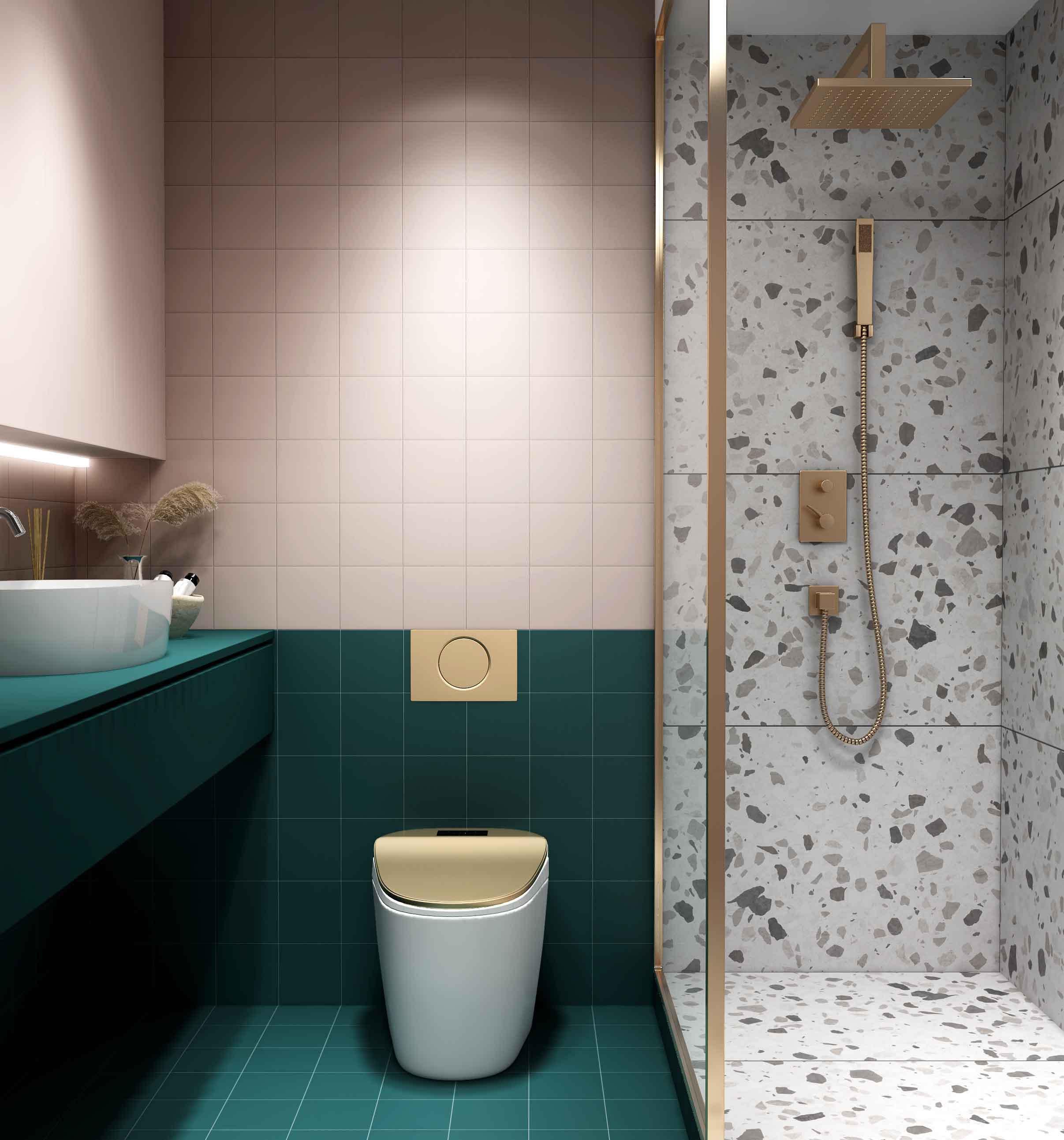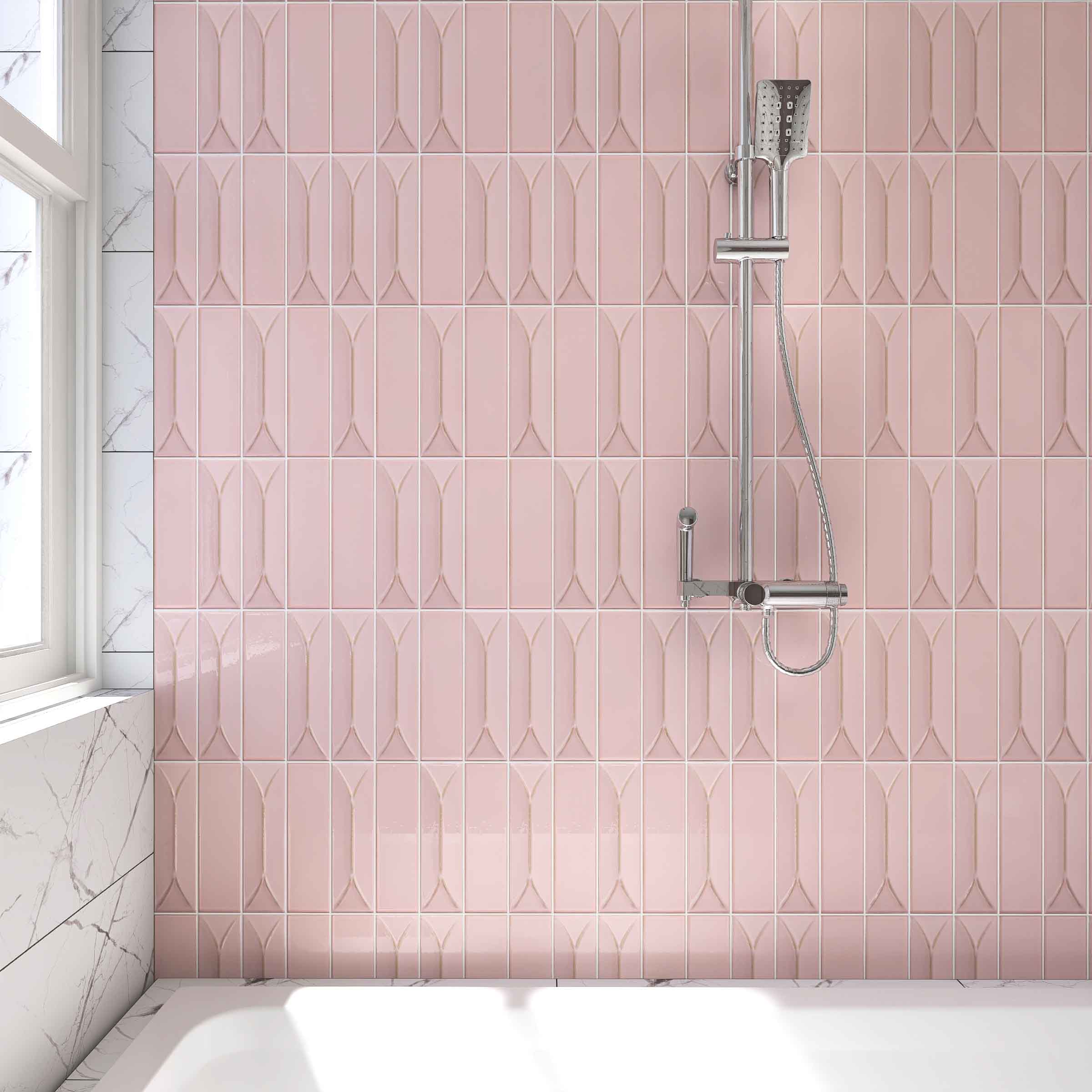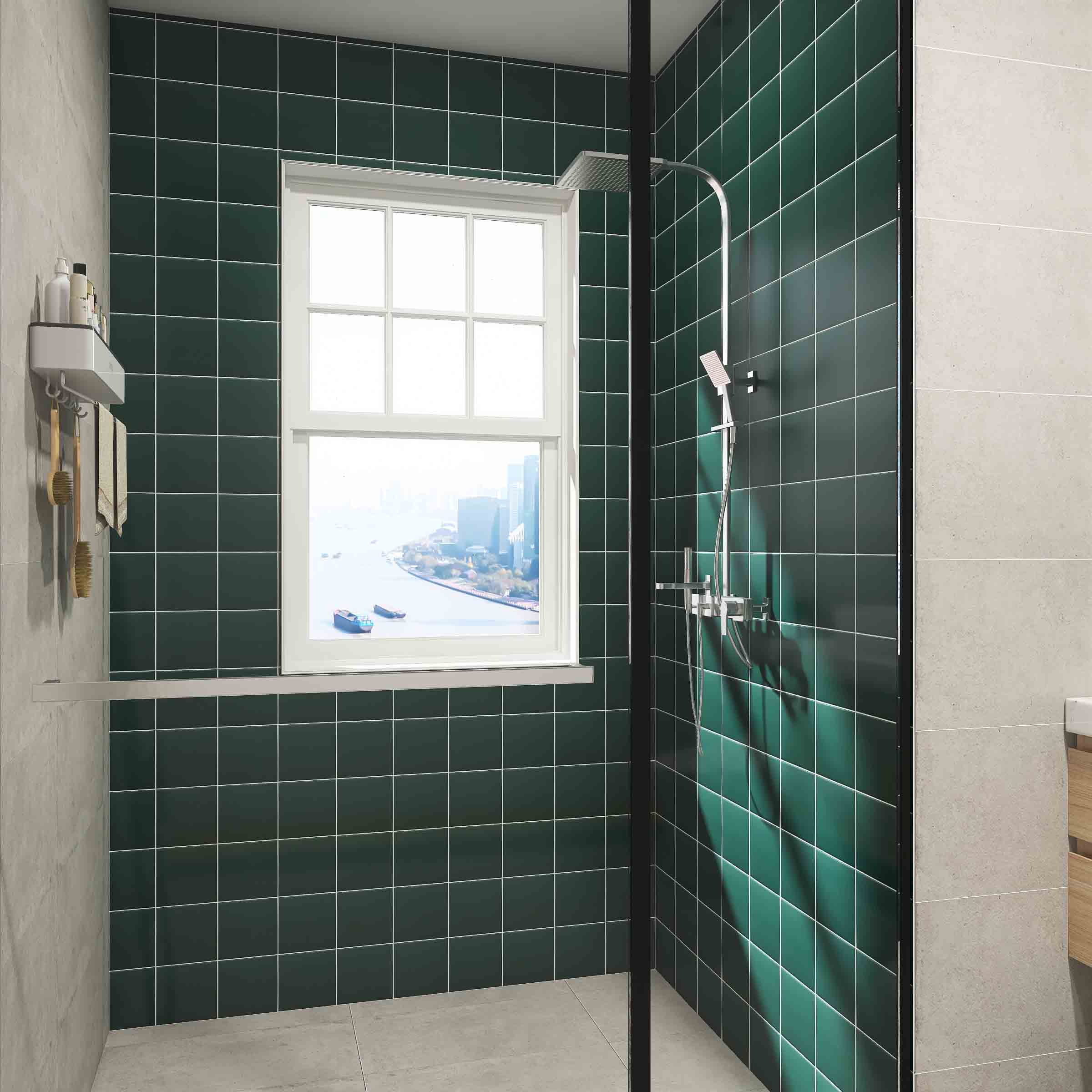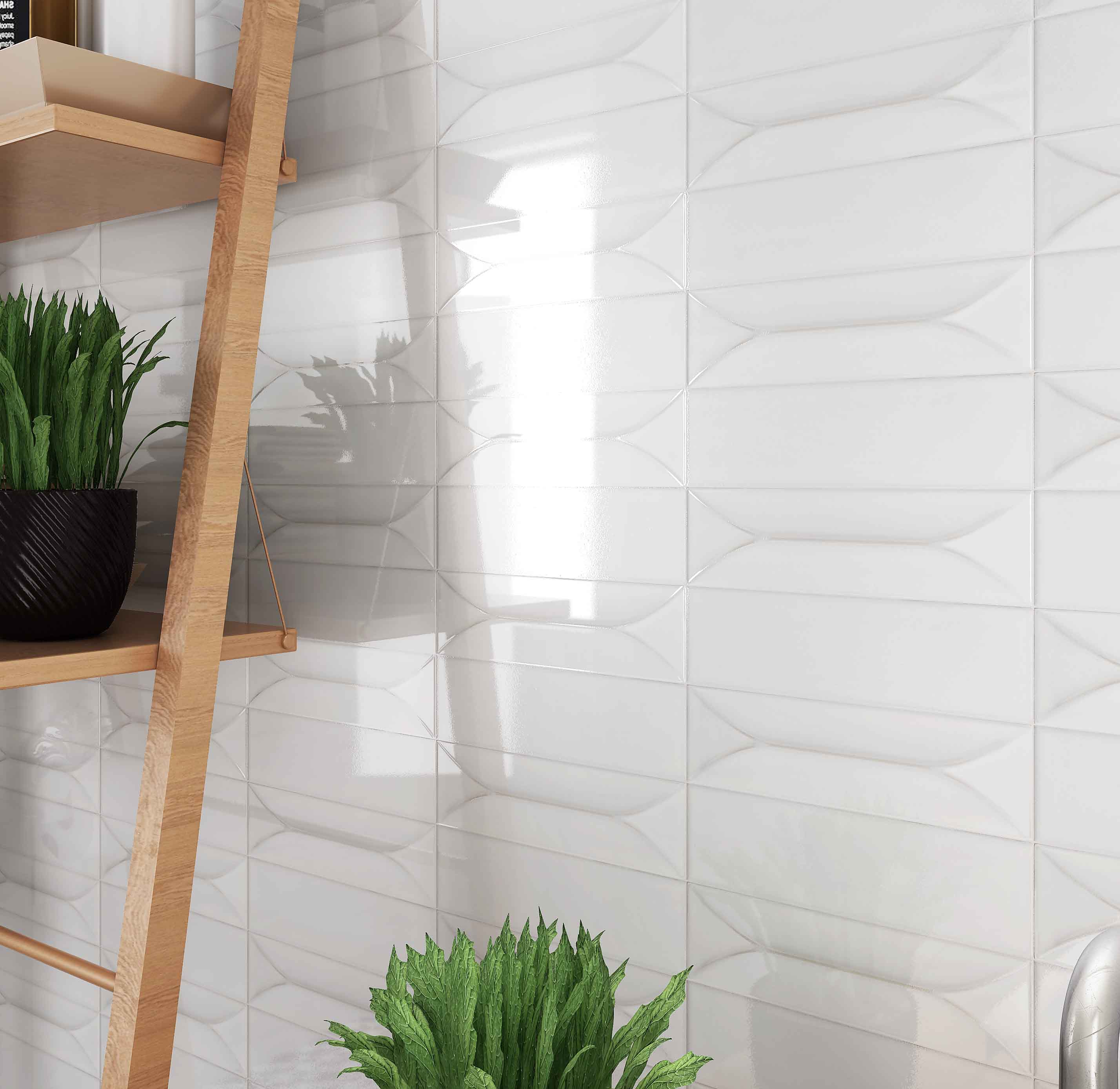Ceramic tile installation can be a daunting task for homeowners looking to update their living spaces. The decision to tackle this project oneself or hire a professional is often a matter of skill, experience, and budget considerations. This article aims to provide an objective assessment of the pros and cons of both options.

Firstly, it is essential to evaluate one's skills and experience in tile installation. Ceramic tile installation requires precision and attention to detail, as well as knowledge of proper techniques and tools. Understanding the complexity of the task is crucial, as mistakes can be costly and time-consuming to rectify.
Additionally, budget considerations play a significant role in the decision-making process. While DIY installation may seem more cost-effective initially, the expenses associated with purchasing tools, materials, and potential repairs can quickly add up.
Hiring a professional has its own set of benefits. Professionals have the necessary expertise and experience to ensure a high-quality and long-lasting installation. They are equipped with specialized tools and techniques that result in a more efficient and precise installation.
Ultimately, the decision to undertake ceramic tile installation as a DIY project or hire a professional depends on one's skills, experience, and budget. This article will further explore the pros and cons of both options to help homeowners make an informed decision.

Assessing one's skills and experience is crucial when considering whether to tackle a ceramic tile installation project independently or hire a professional. Installing ceramic tiles requires a certain level of expertise and precision to ensure a successful outcome.
It involves tasks such as:
- Measuring and cutting tiles
- Preparing the surface
- Applying adhesive
- Grouting
Individuals with prior experience in similar projects or those who possess good manual dexterity may feel confident in undertaking the installation themselves. However, it is important to note that any mistakes or errors in the process can result in costly repairs and compromised aesthetics.

On the other hand, hiring a professional ensures that the job is done efficiently and effectively, minimizing the risk of errors. Professionals have the necessary knowledge, tools, and experience to handle any challenges that may arise during the installation process.
Ultimately, the decision to DIY or hire a professional should be based on an honest assessment of one's skills and experience, as well as the desired outcome and level of risk tolerance.
Exploring the intricacy of installing ceramic tiles requires a comprehensive understanding of the process involved. Ceramic tile installation is a complex task that necessitates attention to detail and a certain level of expertise. It involves several steps, including preparing the surface, measuring and cutting the tiles, applying adhesive, and grouting. Each step requires precision and skill to ensure a seamless and durable result.
Additionally, the complexity of ceramic tile installation is heightened by the need to consider factors such as tile layout, pattern, and alignment. A slight miscalculation or mistake in any of these steps can result in an uneven or flawed installation.
Therefore, it is essential to acknowledge the complexity of ceramic tile installation and consider whether one possesses the necessary skills and experience to undertake the task successfully.

Considering the financial implications and budgetary constraints is a crucial aspect when contemplating the implementation of a ceramic tile project. Whether to hire a professional or tackle the installation as a DIY project is a decision that heavily relies on one's financial situation. Here are some key points to consider:
- Time commitment: Installing ceramic tiles can be a time-consuming task, especially for beginners. Hiring a professional can save time and ensure a quicker completion.
- Skill level: Ceramic tile installation requires specific skills and knowledge. Hiring a professional ensures that the job is done correctly, minimizing the risk of mistakes.
- Tools and equipment: DIY projects often require purchasing or renting specialized tools, which can increase the overall cost. Professionals come equipped with the necessary tools.
- Material costs: Professionals often have access to discounted materials, which can help reduce expenses.
- Potential mistakes and repairs: Inexperienced DIYers may make mistakes during the installation process, resulting in costly repairs. Professionals can avoid such issues.
Considering these factors can help individuals make an informed decision based on their budget and the complexity of the project.
One advantage of enlisting the expertise of a trained individual is the assurance of a proficient and error-free execution of the project. Hiring a professional for ceramic tile installation ensures that the job is done correctly and to a high standard. Professionals have the necessary knowledge and experience to handle the intricacies of the installation process, including tile layout, cutting, and grouting. They are familiar with the best practices and techniques to achieve a durable and aesthetically pleasing result.
Additionally, professionals are equipped with the necessary tools and equipment to complete the job efficiently and effectively. They can also provide valuable advice on tile selection, ensuring that the chosen tiles are suitable for the specific area and intended use. By hiring a professional, homeowners can have peace of mind knowing that their ceramic tile installation project will be completed with precision and expertise.

Examining the advantages and disadvantages of undertaking tile installation as a do-it-yourself project reveals the potential cost savings but also the challenges and potential mistakes that can arise without professional expertise.
- Limited experience: DIY tile installation may be challenging for individuals without prior experience, leading to mistakes in measuring, cutting, and laying the tiles.
- Time-consuming: Installing ceramic tiles requires careful planning, preparation, and execution, which can be time-consuming for inexperienced individuals.
- Lack of specialized tools: DIY enthusiasts may not possess the necessary specialized tools required for accurate tile installation, leading to subpar results.
- Risk of improper installation: Without professional guidance, there is a higher risk of improper installation, which can result in damage to the tiles or the underlying surface.
- Limited warranty coverage: Most tile manufacturers provide warranties that are only valid if the installation is carried out by a professional, leaving DIY installations without warranty protection.
How long does it typically take for a professional to complete a ceramic tile installation project?
On average, a professional ceramic tile installation project can take anywhere from a few days to a couple of weeks, depending on the size and complexity of the area to be tiled, the type of tiles used, and the experience of the installer.
Are there any specific tools or equipment required for ceramic tile installation that I may not already have?
Some specific tools and equipment required for ceramic tile installation include a trowel, tile spacers, a tile cutter, a level, a notched trowel, a grout float, and a rubber mallet. These tools are essential for ensuring a successful installation.
Can I install ceramic tiles on any surface, such as a wooden subfloor or a concrete slab?
Ceramic tiles can be installed on various surfaces, including wooden subfloors and concrete slabs. However, proper preparation and the use of appropriate underlayment or adhesive are crucial to ensure the tiles adhere correctly and prevent future issues such as cracking or shifting.
Are there any specific safety precautions I should take when doing a DIY ceramic tile installation?
Specific safety precautions should be taken when undertaking a DIY ceramic tile installation. These may include wearing protective gear such as gloves and goggles, ensuring proper ventilation, following manufacturer instructions for adhesives and tools, and using caution when handling sharp tools.
How can I ensure that the ceramic tiles I choose will be durable and long-lasting?
To ensure durability and longevity of ceramic tiles, factors such as tile hardness, water absorption rate, and resistance to stains and chemicals should be considered. Additionally, selecting reputable manufacturers and consulting with experts can help make informed decisions.

In conclusion, when deciding whether to tackle a ceramic tile installation project on your own or hire a professional, several factors should be considered.
Assessing your skills and experience is crucial, as ceramic tile installation can be complex and demanding.
Budget considerations should also be weighed, as hiring a professional can be more expensive.
However, the benefits of hiring a professional, such as their expertise and guarantee of quality work, may outweigh the costs.
Ultimately, the decision should be based on individual circumstances and preferences.
More information, please visit our SUNVIN CERAMICS website.